Text
“Paul and John’s smouldering discontent with the royalties they earned from their music reached a peak in the summer of 1968. Brian Epstein had died a year earlier, and they wanted to explore their own business or, in Paul’s words now, ‘grapple with the Apple’, the company they had launched as an umbrella for their work, creative and financial, and altruistically encourage other artists. In a promotional exercise, to make a film to launch the company, Paul remembers inviting Dick James to Apple’s first offices in Wigmore Street, London, in June. ‘It was in those days when we taped and filmed everything and we thought: that might be the thing to do, let’s get Dick to come round. And we happened to have a film crew there; we thought we might just force him into doing something. On camera, he can’t really say no.’ Paul recalls their approach to Dick James and the slightly reluctant response. ‘Hey, Dick, I hope you don’t mind this being filmed…’ Paul said. ‘Well, all right then,’ Dick replied. Paul: ‘Look, we’d really like to ask for a little bit more [percentage royalty from their songs’ income]. We’ve been more successful now than any songwriters have been for any publisher. And we’re on a not awfully good deal, as you and we know. It’s not bad… but couldn’t you see your way to giving us a raise? That’s really all we’re doing, asking for a raise.’ Paul says now: ‘We have been asking for a raise ever since to whoever has been in charge [of Northern Songs]. And now, of course, I am a long-serving, thirty-year employee, when even the lowliest of people get raises. But Dick said: “No, I can’t alter it. I’m in this with Charles Silver. It would be absolutely impossible for me to change the terms of the contract.” ‘We said: “Why?” ‘I now know, running a business, you can change it at a stroke of a pen. You can say: I hereby revoke that contract. I’d like to give these wonderful people a bit more. They should have 5 per cent more each. It would’t have been difficult; Dick took on a lot of stress which he possibly didn’t need. You can only have so many meals a day.’ ‘That was what we were trying to say: “Look, you’ve done great. From being the guy who sang ‘Robin Hood’ to becoming the publisher of the Beatles.”’ Paul and John pointed out that Dick had accrued a great reputation and consequently plenty of extra business because he had the prestige that came from being the Beatles’ music publisher. ‘John started to use an analogy of an acorn and an oak tree, and it was very good, a smart thing. He almost got Dick over a barrel on this one. He said: “Look, Dick, it was an acorn and it’s grown into an oak tree and it’s even taken over the whole bloody garden now.”’ Dick responded to the effect that he owned the original acorn and he now owned the oak tree and there was ‘nothing to be done’, Paul recollects. Seen now, the filmed encounter demonstrates two generations on a collision course: successful artists hardly camouflaging their views that they were being exploited unreasonably, and a veteran show-businessman appealing for reason. […] For Dick James, who prized his integrity and fairness, such a combat was bruising. Since the death of Brian Epstein, with whom he had forged the Northern deal, James and others who had business with the Beatles considered them to be suddenly headstrong, arrogant, and, in a favourite James description, ‘in-grates’. Paul says James never did return to them after that meeting with an offer.”
— Paul McCartney, c/o Ray Coleman, McCartney: Yesterday and Today. (1996)
#oof#the extent of the exploitation always shocks me#I mean they were very wealthy and I don't care that they didn't get to keep all that money#But dick James and Charles silver sure as hell shouldn't have got it#I owned the original acorn and I now own the great oak tree and there's nothing to be done about it#yikes#and this is the guy that slapped Paul's ass in get back and nobody especially Paul batted an eye#really drives home for me just how evil Allen Klein had to be to drive Paul away#because it's not like he doesn't put up with being treated like shit
49 notes
·
View notes
Text
“At the Sheraton, Malcolm Searle was given privileged access for his daily 3AK bulletins. Reporting from the kitchenette of the penthouse suite, he chatted to Paul, John and George, as Paul cooked steak and spuds for his and John’s dinner. The conversation turned playfully camp when Searle called Paul “a regular little housewife” and described the gingham apron he was wearing. “Does he cook for you very much?” John (indignantly): “Don’t say it like that, it sounds funny.”
—Andy Neill and Greg Armstrong, When We Was Fab: Inside the Beatles Australasian Tour 1964, Woodslane Pty Ltd., 1964.

#George being ignored#Paul being an oldest daughter#John being protective#Trees making oxygen#Water being wet#The world spinning on its axis
84 notes
·
View notes
Text
Paul is a victim of chronic childhood trauma, whose personality was shaped by three destructive forces: the death of his mother (loss of love), his father's violence (loss of safety), and his unpredictable "care" (loss of trust). His psyche operates in survival mode: suppression of emotions, traumatic attachment to the abuser, and somatization of stress. He experiences an unresolvable internal conflict between the awareness of his father's toxicity and the childlike need for his love. Music is the only light in this darkness. His story is a classic example of a "broken child" in an adult's body, where the pain of the past continues to live in the present
86 notes
·
View notes
Note
kind of a crazy question but do you think john and paul ever had a 3-way with yoko/linda/another gf ?
hmmm this is a fun one. I really have no answer for you except I sincerely hope so!! My favorite for the threesome would have to be Linda ofc and she's also the most likely imo especially after John got over his one-sided beef with her. What do you think, anon?
11 notes
·
View notes
Text
pure chaos😭😭
#love Ringo making John look like a little baby girl and Paul smacking his ass.#As a reward for winning a trophy or a punishment for misbehavior?#We'll never know.#mclennon
110 notes
·
View notes
Text




Happy Birthday, Paul McCartney (b. 18th June 1942)
And when I think that all this stuff, Can make a life, it's pretty hard to take it in, That was me.
235 notes
·
View notes
Text
Happy birthday to Jim McCartney's beloved red piece of meat, Donovan's beautiful two-headed monster, Martha the dog's adored owner, Yoko Ono's great threat. Happy Birthday to Mike McCartney's tender older brother, George Harrison's older brother by nine whole months and the baby brother Ringo's Starr always wanted. Happy birthday to one of the only men Bob Dylan considered a threat, Stevie Wonder's friend, Brian Wilson's admirer, the man who Derek Taylor briefly hated more than anybody else and the person who sent Dusty Springfield flowers in her time of need. Happy birthday to the guiding light in Stella McCartney's life, the man who fought a ram to defend his children and the man who let kids play with knives to teach them life skills. Happy birthday to the man who feels love so much that it comes out in all body tingles, who sees stonehenge as the heart chakra of the earth and who just really really likes buses. Happy birthday to the 1960s pin-up, the indie rock forerunner, the flop movie maker, the writer, the 1980s chew toy, the vegetarian advocate, the protester and the council lad from Liverpool who changed music forever.
Happy birthday to Linda McCartney's prince charming, John Lennon's extraordinary dear one. Happy birthday to today's Mozart, Yesterday's creator and everyones grandude.
Happy birthday to the Gemini who isn't just a Gemini, but a whole constellation.
Happy birthday Paul McCartney.
283 notes
·
View notes
Text
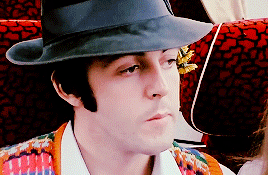

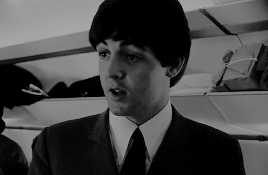
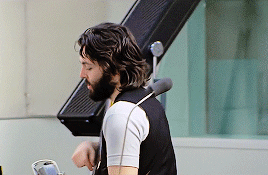

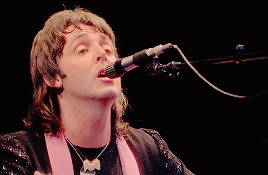

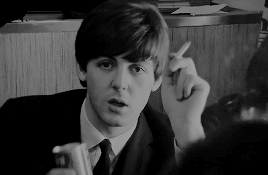
Happy Birthday Paul McCartney [born June 18th, 1942]
#ooohhh#one essential characteristic of Paul McCartney is that he was very very pretty#love these op
769 notes
·
View notes
Text

Paul McCartney with his son James and father-in-law Lee Eastman, c. 1983 via @/lindamccartney instagram
170 notes
·
View notes
Text

the urge to draw John Lennon as a 60s it girl
482 notes
·
View notes
Text
Paul posting himself instead of Jim for Father’s Day. Slay.
208 notes
·
View notes
Text
Paul to Hunter Davies in 1981, “I realize now [John and I] never got to the bottom of each other’s souls. We didn’t know the truth. Some fathers turn out to hate their sons. You never know." Paul on the record in 1989, "John was not hard. John was the softest guy that i ever met. John was a baby, a lovely little baby John was"
(came across the first quote in a post from @muzaktomyears)
#the biggest proof that they were verse imo#they took turns calling each other Daddy and baby#Also fuck you Jim McCartney but what else is new#Paul McCartney#john lennon#the beatles#Mclennon
89 notes
·
View notes
Text
The she loves you yeah yeah yeah bit in all you need is love is insane look at where we are look at where we started!!!!!!!!!!!!!!!
#I just love it because it's Paul going 'yeah john you're right all you need is love and just as a reminder you've got it from me. '#and it's brought on by John throwing in the word yesterday to get Paul's attention as he would many times in the future#always talking
301 notes
·
View notes




